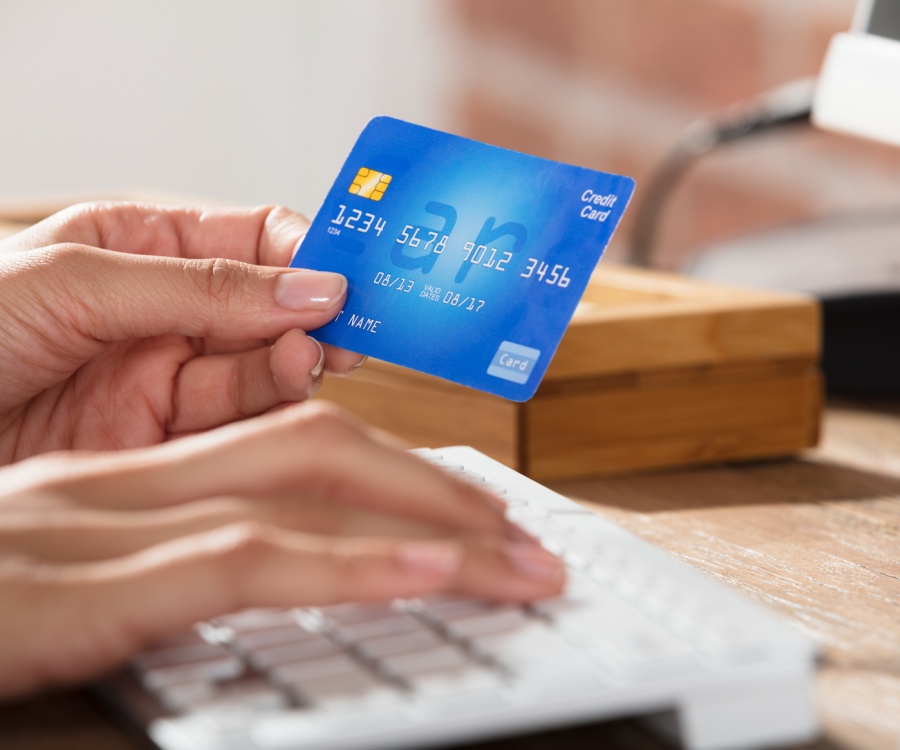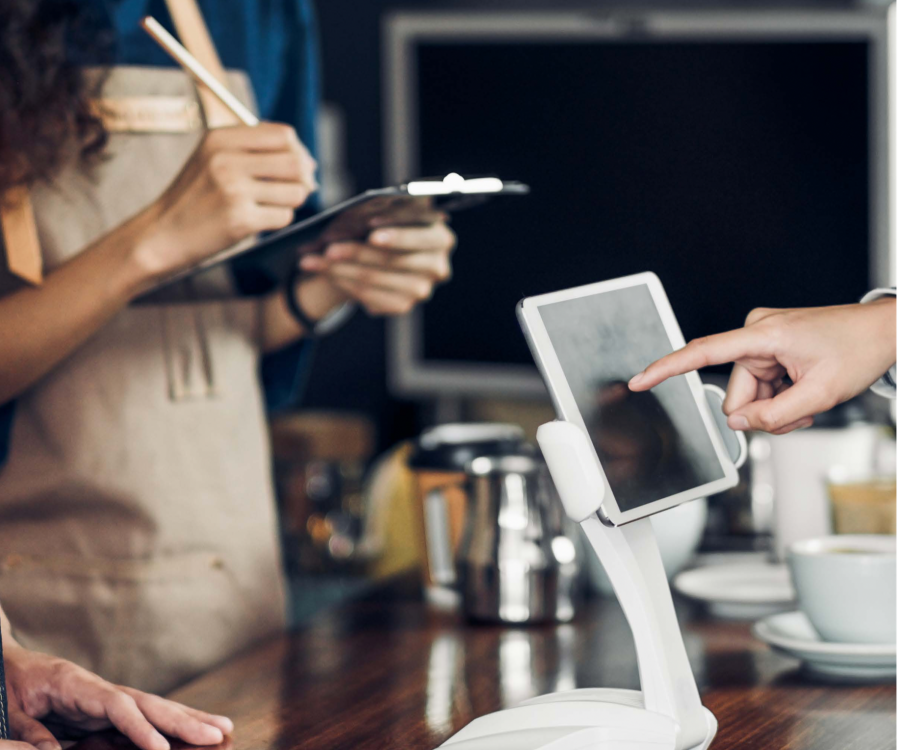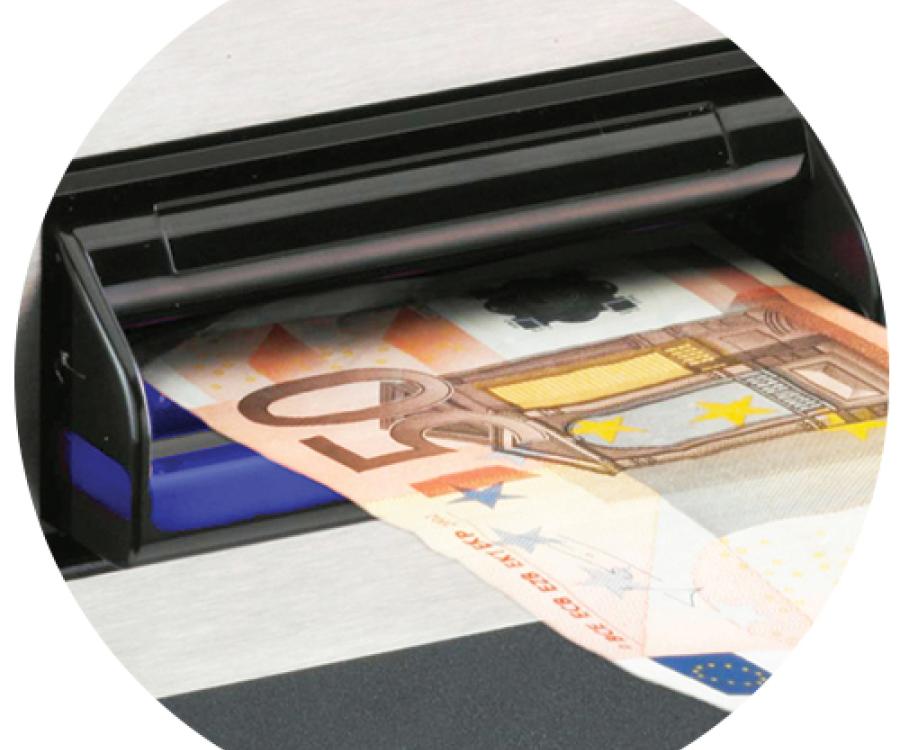Not again! I just want to make I quick bakery run and grab a roll. Do I have enough change in my wallet? No. What about my purse? Yes, I found two Euros! That should be enough. Otherwise, I would have had to get some cash first. When it comes to smaller amounts – especially at the bakery – it would be great if I didn’t have to pay cash. How many times have I been asked there whether I have the exact change? Or whether I have ten cents to make change? That’s why some bakeries in Germany now also offer cashless payment options. But my bakery does not.
Unlike the fruit shop in my village. As of late, it finally offers electronic payment options. I wanted them to do this for some time. After all, how many times did I have to drive past the farm shop because I had no cash on me? It makes me wonder how much money this retailer has lost over the years because of it. But there is a catch: the minimum transaction amount to pay by card is 15 Euros. Now I no longer worry whether I am able to pay but instead I worry whether I bought enough to reach the minimum amount to use my card. That’s still not practical in my eyes – but it’s something that still happens a lot.
I admit, I love to pay with my credit card. The tiny card doesn’t take up much space and the account statement shows exactly where, when and what I spent my money on. Even though studies show that paying with cash makes consumers more frugal and prevents them from making extravagant purchases, do you really keep better track of your money this way? I would have to keep all my sales receipts, so I would know at the end of the month how much money I spent and for what.
Thoughts for Discussion:
The total costs of cash handling – including security, transportation etc. – are higher than card payment costs (European Payments Council)
Cash payments don’t need electricity
Cash doesn’t leave a data trail – unlike cashless/mobile payments, which will make more “personalized offers” possible. Though this might lead to price discrimination …
Sweden has fewer bank robberies but instead, an increase in card fraud
Would I really be willing to completely live without cash?
The pocket money I give my children, the change I give a homeless person on the street, the tip for the pizza delivery person (I paid the pizzas in advance via PayPal). Would my 90-year-old neighbor trust in paying for her bread by credit card at the bakery? After all, she is used to paying cash. And in fact, Germans are extremely fond of paying cash. They associate cash with anonymity, independence from banking institutions, self-determination, and tradition.
The current study of the Deutsche Bundesbank (Central Bank of the Federal Republic of Germany) has once again shown that cash remains Germany’s most popular means of payment. That’s also why financial experts warn against forcing Germans to say goodbye to cash without asking citizens to be a part of this decision-making process. I suppose I wouldn’t be very happy if – as was the case with India – the government simply decided my cash to be worthless and forced me to only make electronic payments.
With that in mind, I guess I can somewhat understand the initiatives to keep cash as a means of payment. By the way, these initiatives are not just taking place in Germany but also in Sweden, even though – or maybe because of it - paying with a credit card is widely accepted and popular there.
Pocket money, public restrooms or coffee-to-go – everything is paid by credit card or by bank app via smartphone. Admittedly, the Swedes have no choice but to gradually do without their cash. Banks simply refuse to accept or spend cash. That’s why everyone pays with a credit card or the mobile – especially in urban areas. Having said that, there are a few drawbacks to all this. What about people who don’t own a smartphone or live in an area with no or slow internet connection? Retailers in these areas are clearly getting the short end of the stick. Many people are already hoarding their cash at home – simply because they are unable to spend it. Surely that can’t be the point of all this.

Let’s hold hands
The pros and cons of cash and cashless payment methods venture far outside the scope of my commentary. There are too many cooks in the kitchen – the financial world, the consumer, the retail industry, the government.
One thing is clear: Experts agree that we are still a long way away from becoming a cashless society. That’s why the Central Bank (Deutsche Bundesbank) recommends the co-existence of different payment options. And why not? It’s a proven fact that technological options for electronic and mobile payments will continue to inspire more people to embrace cashless payment methods anyway. That’s also why the German Retail Federation HDE recently stated that for the time being, additional methods will continue to be seen as an option in German retail.
If only I could already use these alternatives everywhere. Anyway, I am off to get some dinner rolls … and I will pay with cash.












